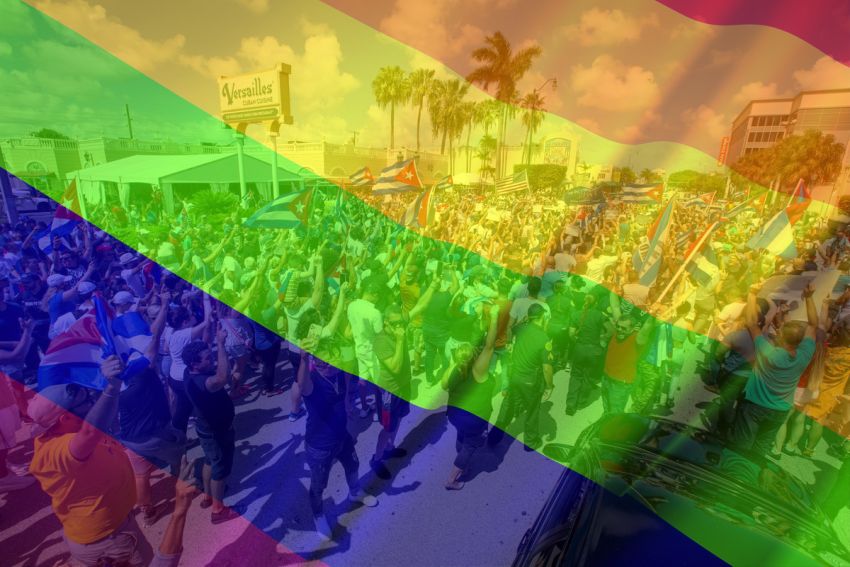
Same sex marriage may soon be lawful in Cuba.
The Cuban government backed away from enshrining same sex marriage protections in its 2019 constitution, in the face of opposition from evangelical churches as well as the Catholic Church.
The current proposal for same sex marriage is contained in a draft new family code, which replaces the 1975 family code, which has been overtaken by new family structures and social changes.
The draft code would also give children greater participation in decisions that affect them, expand grandparents’ rights, permit financial agreements before marriage, and provide for punishments for violence within marriage.
It also lets parents decide whether a child takes the family name of their mother or father, and remedies the unequal age of consent to marry for men and women. The 1975 code allows women to marry at 14 and men at 16.
Currently, Cuba's family code defines marriage as “the voluntarily established union between a man and a woman” and makes no provision for same-sex marriage.
Article 61 of the new draft code defines marriage as a “union of two people with legal aptitude who voluntarily agree to enter into it in order to build a life together based on affection and love".
The code must be approved by Cuba’s legislature, the National Assembly of People's Power, before going to a popular referendum. The National Assembly is presently discussing the provisions of the new draft code. [Update: Cuba's National Assembly approved the new family code on December 22.]
Yamila González Ferrer, vice president of the National Union of Jurists of Cuba, says that the proposed new family code would do much more than authorise same sex marriage.
“[The code] protects all expressions of family diversity and the right of each person to establish a family in coherence with the constitutional principles of plurality, inclusion and human dignity,” González said.
Article 42 of the 2019 constitution states: “All people are equal before the law, receive the same protection and treatment from the authorities, and enjoy the same rights, liberties, and opportunities, without any discrimination for reasons of sex, gender, sexual orientation, gender identity, age, ethnic origin, skin color, religious belief, disability, national or territorial origin, or any other personal condition or circumstance that implies a distinction injurious to human dignity.”
When the new constitution was first drafted, it declared marriage to be a union of two people with absolutely equal rights and obligations. However, after opposition from the churches, the final constitution made no provision for same sex marriage.
However, the constitution did require that within two years of it taking effect a new family code would be drafted and a process of popular consultation and referendum undertaken, which must include the form that a marriage may take.
Óscar Silveira Martínez, Cuba’s Minister for Justice, in referring to the draft new family code, said: “We consider this version to be consistent with the constitutional text … [It will] develop and update the various legal-family institutions in correspondence with the humanistic nature of our social process.”
Cuba’s current proposal to legislate for same sex marriage will undoubtedly meet strenuous opposition from churches and social conservatives as happened in 2018.
[Updated January 19, 2022.]